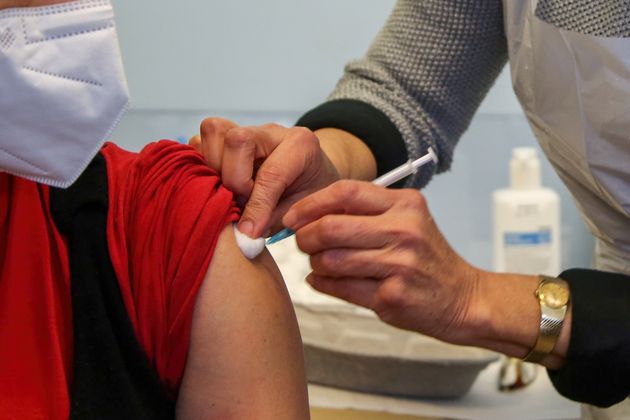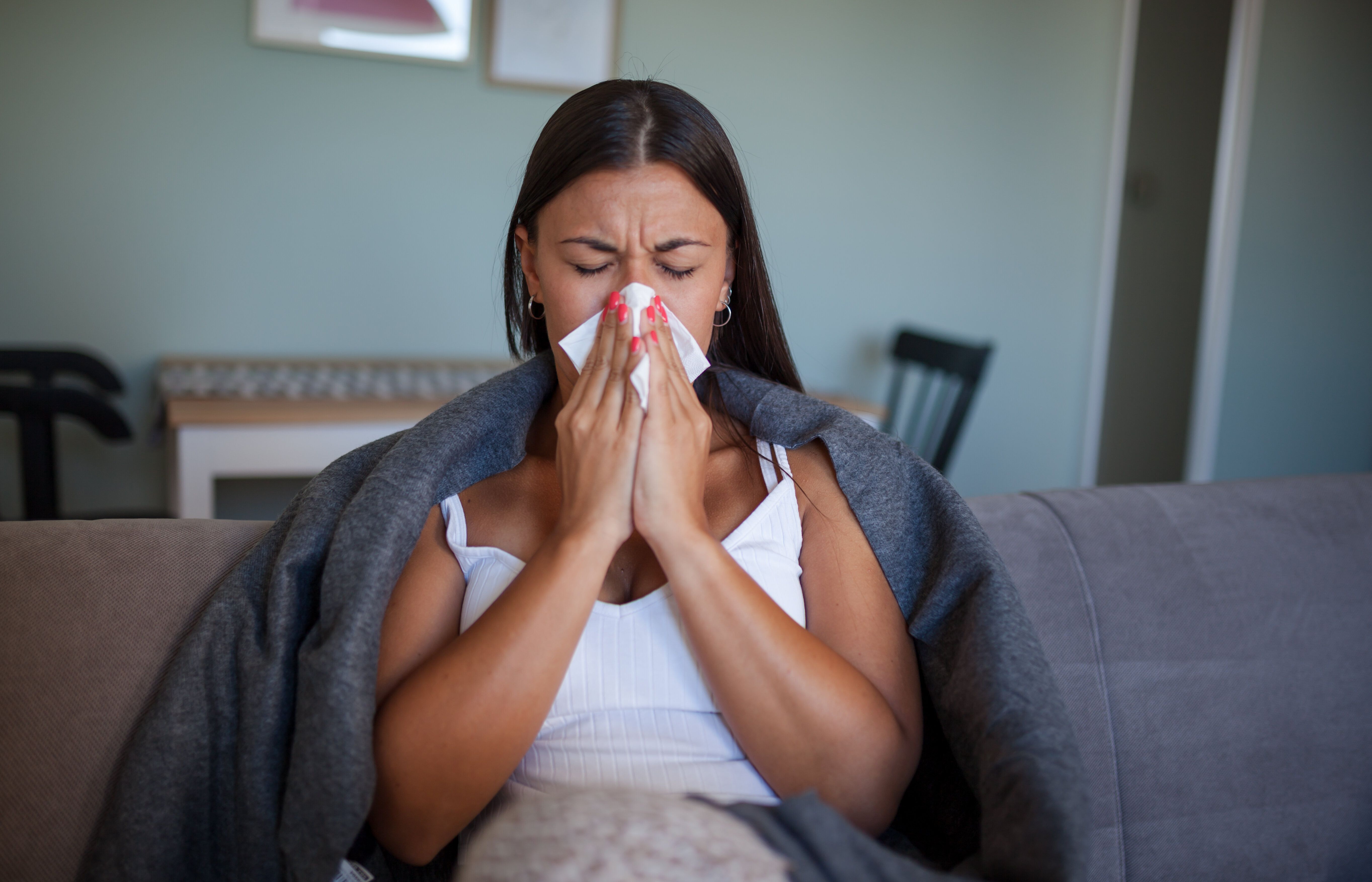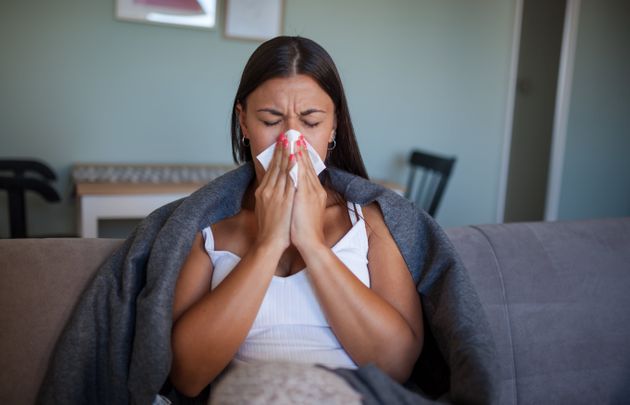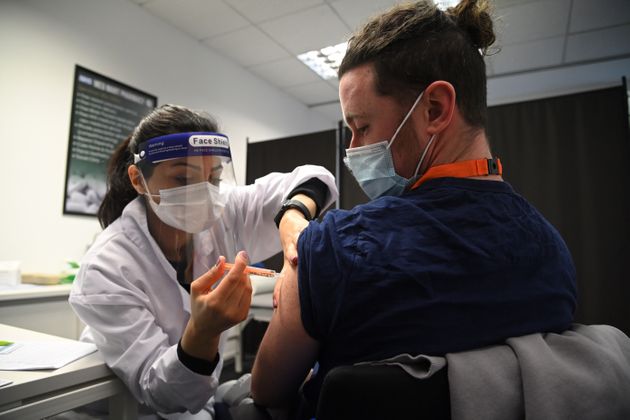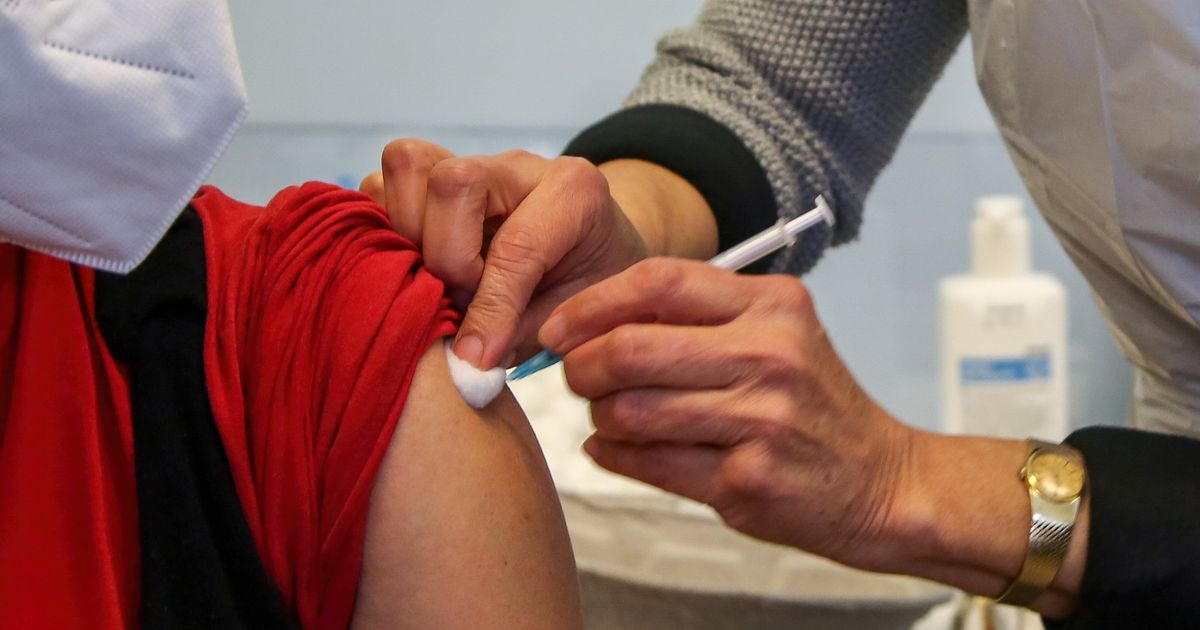
Patients are expressing concern that some Covid booster jabs, flu vaccinations, as well as key hospital appointments, are being cancelled ahead of the Queen’s funeral on September 19 since it was made a last-minute Bank Holiday.
Kate Brodie, 62, a retired NHS GP who is about to start a second round of chemotherapy for breast cancer, had specifically timed the date of her Covid booster so it fell before her hospital treatment started.
Advertisement
The vaccine was booked for September 19. However Brodie, who lives in south Devon, says she received a text message on September 12 saying the appointment had been cancelled due to the unexpected bank holiday.
“Having cancer is a huge stress with all the worry about survival, the process of going through gruesome treatment and hoping to continue to avoid Covid 19 while my immune system is down,” she tells HuffPost UK.
“The death of the Queen is very sad, but the reaction by NHSE [NHS England] to cancel delivery of much-needed services at short notice will cause harm and hardship to many.”
Advertisement
Many GP practices across England will be closed for the Bank Holiday, which has been given to allow individuals, businesses and other organisations to pay their respects to the Queen on the day of her state funeral.
A letter from Dr Ursula Montgomery, director of primary care at NHS England, said that out-of-hours services will be in place during the day to meet patients’ urgent primary medical care needs.
The funeral has come at a busy time for the NHS, as it implements its Covid booster and flu vaccination programmes ahead of the winter.
A text message from one GP surgery on the outskirts of London, seen by HuffPost UK, said flu vaccine appointments scheduled for this week would need to be rescheduled by a few days because of “the unfortunate news the nation is facing at the moment”.
Dr Helen Salisbury, a GP and medical educator from Oxford, explained on Twitter how a last minute bank holiday can be a “nightmare” for those trying to run health services, especially with lots of patients already booked in.
“What to do?” she tweeted. “Implore staff to work and pay extra? Reschedule and delay all the appointments?”
Advertisement
Other staff working in general practice responded to say that even when they do open on Bank Holidays, they often aren’t busy. Some added that they suspect lots of patients won’t turn up because they’ll be watching the funeral.
Advertisement
Scheduled Covid boosters are still going ahead in care homes, said NHS England, which has also issued guidance urging clinics to stay open to deliver the boosters “where there is a high population need”.
But a report by openDemocracy found thousands of non-urgent hospital appointments – for issues such as hip and knee replacements, cataract surgery, maternity checks and some cancer treatments – are being postponed.
One pregnant woman revealed how her foetal scan had been cancelled, leaving her anxious about her baby’s health.
“I’m really disappointed,” she told openDemocracy. “Yes, it’s a routine scan, but that’s another week or two until I’m seen and wondering whether my baby is healthy – which means quite a lot of anxiety, sitting and waiting.”
Advertisement
Kate Brodie has since tried to rebook her Covid booster for the next cycle, but was told there were no dates free near to where she lives.
“Thankfully I have found a centre 15 miles away that I can attend on Sunday instead,” she says. “I am lucky I am mobile and have transport to reach the further venue.”
Meanwhile, Greg Hadfield, 66, from Brighton, also found out his Covid booster vaccine appointment on September 19 has been cancelled and is now having to travel nearly 40 minutes by car to get another one.
The 66-year-old was originally invited to have the booster at his local Waitrose. However because the store will now be closed for the Bank Holiday – as many supermarkets will be – his appointment won’t go ahead.
“When I tried to re-book for another day at the same centre, the system offered only dates that were 14 days-plus ahead, by which time I will be abroad for a month,” he tells HuffPost UK.
Advertisement
He has managed to book an appointment 40 minutes away for the same date, September 19, which hasn’t been cancelled – so far.
“I am just relieved to get the booster before leaving for Turkey and Greece later this month,” he says.

